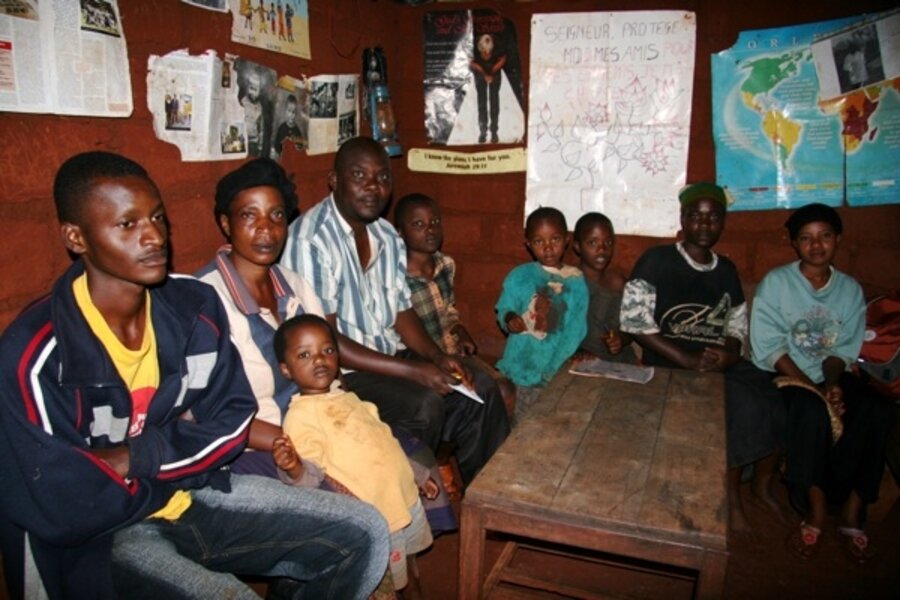When a refugee camp closes – where do refugees go?
Loading...
It wasn't just the rain that beat down on the morning I visited Mtabila refugee camp, turning the roads to muck and leaving chickens shivering in little huddles under the eaves of the mud-brick houses. Even in the blazing heat of the afternoon before, the camp was a depressing place.
The reason - besides the desperation and need in this camp of 40,000 Burundian refugees near Kasulu, Tanzania - is an exodus now underway. The Tanzanian government, in recent decades one of the most generous hosts of refugee populations in Africa, is nearing the end of a two-year effort to shut down its camps. All Burundian refugees - some who fled ethnic violence in their homeland in 1972, others when it erupted again in 1993 - are scheduled to be sent home by July 1, by force if necessary.
Among them are some close friends of Bill's family from their former camp: father Jean-Paul Rukundo, mother Marcellina Hatungimana, and their eight kids - including Bill's old soccer buddy Jean-Jacques, and two teenage girls who were friends with his sister Neema.
The parents fled their home near Bujumbura over a decade ago.
They would have returned long since, says Jean-Paul, if they thought that they would be safe. Like Dawami and Hassan, they are a "mixed" couple: He's Hutu, she's Tutsi. His family first opposed their marriage, then disowned him, then attacked her with knives - an account apparently corroborated by scars on her thighs and arms, and one the Office of the United Nations High Commissioner for Refugees has deemed credible in repeated interviews.
So the family fled, first to Congo, then, when that country erupted in violence, across the Tanzanian border. Now, parents and children live in two mud-brick houses in Mtabila, surrounded by clotheslines where colorful fabrics flap in the rain, with a pit toilet behind a tarp out back.
At one point, the family was being considered for resettlement to Norway; they even took classes in preparation. UN resettlement clerk Pablo Joseph says their paperwork likely fell through the cracks - then a short-term head of the UN field office in Kibondo, Tanzania, closed their case along with 200 others, in an effort to persuade more Burundians to return to their country.
"They say: You're all Burundian, and Burundi is peaceful now,' " says Jean-Paul "but if the UN would start screening: Why don't you want to go back?', [they'd see] all have different problems. Some have family members in prison; others, the government sold their land back there without even consulting them."You can read more about Jean-Paul, and the situation in Burundi now, in this recent Monitor story.
Even under UN protection, Jean-Paul says, his family has been persecuted. He thinks a return to Burundi would be a death sentence. As the July 1 deadline for camp-closure draws near, the family is preparing to run once again.
"I don't know where I'm going to go," Jean-Paul says. "I am not willing to repatriate. I can't take them back to that same family. If the Tanzanian authorities use force, I will have no other alternative but to hide myself in local villages."
Travel for this project's Africa reporting was funded in part by a grant from The Pulitzer Center on Crisis Reporting.





